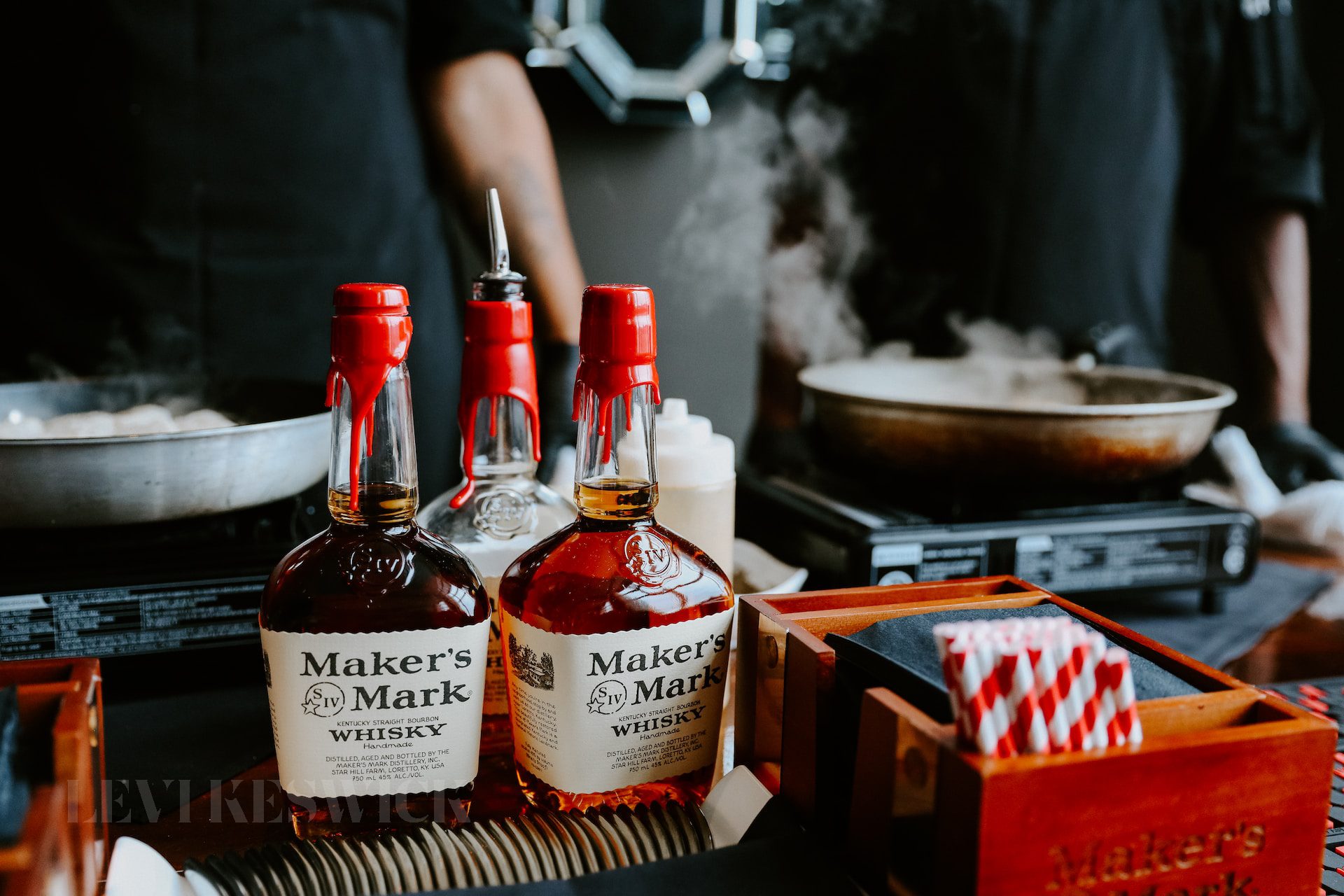Key Takeaways:
- Jack Daniels and Makers Mark represent two distinct types of American whiskey: Tennessee Whiskey and Kentucky Bourbon.
- The use of different grains in their mash bills gives each a unique flavor profile.
- Makers Mark’s artisanal production process and Jack Daniels’ charcoal-mellowing method contribute to their unique characteristics.
- Both brands are top-tier choices, each offering a range of products to suit different tastes and budgets.
- While Jack Daniels may be smoother and better suited to simple mixed drinks, Makers Mark’s complexity makes it ideal for more elaborate cocktails.
A Tale of Two Whiskeys
The American whiskey scene is a rich tapestry of tradition and innovation. At the heart of this narrative are two titans: Jack Daniels and Makers Mark. Although both brands are deeply entrenched in the American whiskey tradition, they each offer distinct expressions, born of their unique origins, ingredients, and production processes.
Mash Bills: The Foundation of Flavor
The recipe of grains used in whiskey production, known as the mash bill, significantly determines a whiskey’s flavor profile. Jack Daniels follows a mash bill of 80% corn, 8% rye, and 12% malted barley, resulting in a sweeter taste. Conversely, Makers Mark uses 70% corn, 16% red winter wheat, and 14% malted barley in its mash bill. The use of wheat instead of rye lends a softer, smoother profile to Makers Mark, defining its characteristic flavor.
Crafting Excellence: Production Process and Distillation
Both brands have unique approaches to whiskey production. Makers Mark adheres to a more artisanal, hand-made process, even manually dipping every bottle in red wax. This attention to detail extends to their two-time distillation in copper stills, which imparts a rich, complex flavor to their spirits.
On the other hand, Jack Daniels, although more machine-oriented, sets itself apart with the Lincoln County Process. This charcoal-mellowing technique mellows the spirit, removing harshness and adding smoothness, unique to Tennessee Whiskey.
Maturation: The Test of Time
Both brands mature their spirits in new oak barrels, but for different durations. Makers Mark is typically aged for six to seven years before bottling at 90-proof. Jack Daniels’ whiskey, after undergoing the Lincoln County Process, is aged in charred oak barrels and bottled at 80-proof. The duration and conditions of maturation significantly influence the final flavor of the whiskey.
A Class of Their Own: Liquor Types and Labels
Despite both being American whiskeys, Jack Daniels and Makers Mark belong to different subcategories. Jack Daniels is classified as a Tennessee Whiskey, following a specific grain mixture, maturation in new American oak casks, and the Lincoln County Process. On the other hand, Makers Mark is a Kentucky Straight Bourbon, distilled from a mash of at least 51% corn and aged for at least two years in new charred oak barrels.
Assessing Popularity: Brand Recognition and Sales
In terms of brand recognition and sales, Jack Daniels leads, being the best-selling American whiskey brand worldwide. However, Makers Mark holds its own as a well-respected competitor, favored by many whiskey enthusiasts for its distinctive flavor profile and craftsmanship.
In a Tasting Glass: Flavor Profiles
Makers Mark is known for its rich, spicy, and sweet notes with hints of caramel and vanilla. In contrast, Jack Daniels offers a medium-bodied palate with hints of caramel, vanilla, fruity notes, and an undertone of oak char. These unique flavors make each brand a staple for any whiskey lover’s collection.
Bottle Strength: The Impact of Alcohol Proof
The strength of a whiskey, indicated by its proof, can influence its flavor and character. Jack Daniels is bottled at 80-proof, having been reduced over time from an original 90-proof. This adjustment ensures a smoother, more mellow drink, in line with its characteristic profile. On the contrary, Makers Mark’s Kentucky straight bourbon is bottled at a stronger 90-proof, giving it a slightly more potent kick, echoing its rich, robust flavor profile.
Value for Money: Assessing Price Points
Price is a critical factor when choosing a whiskey. Jack Daniels’ Old No.7 or Black Label is priced around $26 for a 750ml bottle, making it an affordable choice for many whiskey enthusiasts. On the other hand, a 750ml bottle of Makers Mark bourbon typically costs around $32, positioning it slightly higher on the price scale. However, both brands offer a range of products at different price points, catering to a wide array of preferences and budgets.
Cocktail Companions: A Matter of Preference
When it comes to cocktails, Makers Mark’s complex profile makes it a versatile ingredient for a range of classic concoctions such as the Old Fashioned. However, Jack Daniels also holds its own, adding character to simple mixed drinks like Jack and Coke.
Smooth Operator: Jack Daniels or Makers Mark?
Jack Daniels is often considered smoother than Makers Mark due to its charcoal-filtering process, which mellows the whiskey. However, the soft, smooth profile of Makers Mark, resulting from its use of wheat in the mash bill, is also widely appreciated for its smoothness.
Shelf Status: Premium Selections
Both Makers Mark and Jack Daniels offer expressions that are considered top-shelf. Makers Mark’s Cask Strength and Jack Daniels’ Gentleman Jack, among others, offer connoisseurs premium options to savor and enjoy.
Final Verdict: Appreciating Uniqueness
When weighing Jack Daniels against Makers Mark, it becomes evident that each brings a unique expression to the table. Jack Daniels’ distinctive smoothness and flavor profile, attributed to its high corn mash and charcoal-filtering process, has made it a globally recognized brand. At the same time, Makers Mark’s handcrafted process and wheat-inclusive mash bill result in a bourbon that’s distinctive, rich, and versatile.
Choosing between these iconic brands often boils down to personal preference. Both whiskeys are worth exploring, offering different experiences bound to make every sip an adventure. Regardless of the choice, these brands continue to epitomize the richness and diversity of American whiskey.








